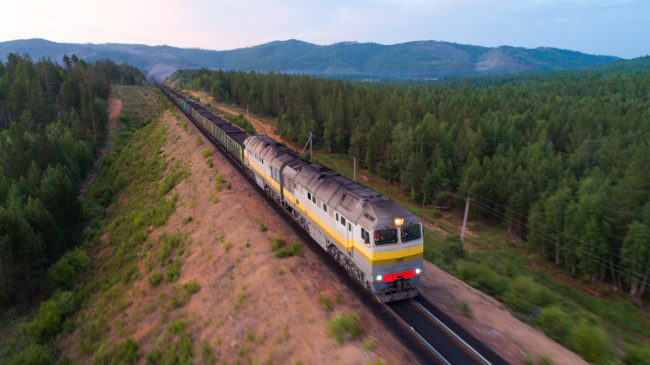In recent years, environmental activist groups led by the Sierra Club have initiated litigation against freight railroads in an effort to limit the transportation of coal that they oppose. The activists have argued the small amounts of coal dust that blows off moving railcars into adjacent rivers and streams violate the Clean Water Act. A federal judge found enough evidence to proceed to trial, although the case was settled before a decision was made on the merits.
Railroads are now requesting their national economic regulator, the Surface Transportation Board (STB), to preempt the Clean Water Act (CWA) through its authority granted by Congress under the Interstate Commerce Commission Termination Act (ICCTA).
The claim that small amounts of coal particles that end up in waterways during the course of rail transportation present a serious environmental hazard is unsupported by the available evidence. Indeed, fugitive coal dust that escapes from open-top railcars during transit is known to potentially cause problems in only extremely high traffic areas of coal-mining in the country. Even then the problems have to do with the dust clogging drainage from the trackbed and increasing risk to infrastructure, rather than creating direct and significant environmental hazards. For this reason, open-top coal cars are sprayed with dust suppressants or covered with tarps, mitigation practices that have been approved by the STB.
The CWA established a general prohibition on discharges into navigable waterways as well as the National Pollutant Discharge Elimination System permitting regime, whereby point source (i.e., stationary) industrial polluters must seek permission prior to discharging substances to waterways. In 2016, the U.S. District Court for the Western District of Washington held that BNSF Railway faced potential liability under the CWA for coal dust discharges. Before the case could be decided on the merits, BNSF settled with the Sierra Club and other litigants. Per the terms of the settlement BNSF denied any alleged CWA violations, agreed to provide $1 million to fund environmental initiatives in Washington state, and committed to studying the feasibility of physically covering coal-carrying railcars.
However, the core issue of whether or not—and if yes, how—the CWA applied to fugitive dust from coal trains remained unresolved. This has cast a long shadow of uncertainty over the transportation of coal from Powder River Basin mines in Wyoming and Montana to export terminals on the West Coast, although railroads continued to argue that the CWA has never and does not apply to incidental coal particle discharges from moving railcars.
In November 2019, the Association of American Railroads petitioned the STB to clearly preempt the CWA under its broad congressional mandate under the ICCTA stating that the STB’s powers to issue and enforce national “regulation of rail transportation are exclusive and preempt the remedies provided under Federal or State law” (49 U.S.C. § 10501(b)(2)). The STB granted the petition and began accepting public comments in February 2020, with the comment period closing in April. Now we wait.
While the outcome is not certain, the railroads stand on fairly solid ground. During the Obama administration, the STB invoked its aforementioned authority under Section 10501(b) to preempt a series of 18 nearly identical lawsuits filed against Norfolk Southern Railway in Virginia’s Roanoke County District Court in which plaintiffs alleged a wide range of coal train nuisances, including those manifesting from fugitive coal dust. While these lawsuits involved alleged violations of state law, the same logic of the STB’s 2013 decision would apply equally to “remedies provided under Federal or State law.”
In late May, U.S. House of Representatives Transportation and Infrastructure Committee Ranking Member Rep. Sam Graves (R-MO) and Ranking Member Rep. Rick Crawford (R-AR) of the Subcommittee on Railroads, Pipelines, and Hazardous Materials sent a letter to STB commissioners urging them to preempt the CWA to remain consistent with congressional intent. “The ICCTA makes clear that the STB holds exclusive jurisdiction over transportation by rail carrier,” the pair wrote. “The application of the CWA to transport by freight car is unprecedented and a broad expansion of government control over an already heavily regulated industry.”
Regardless of one’s position on the harm or lack thereof of fugitive coal dust incidentally discharged by moving railcars, it appears more likely than not that the STB will preempt the CWA in this matter. If environmental activists wish to change the law to arrive at a different outcome, they should petition Congress to amend the laws at issue rather than venue-shopping their unprecedented interpretations of the CWA around the sleepier corners of the judicial branch.

